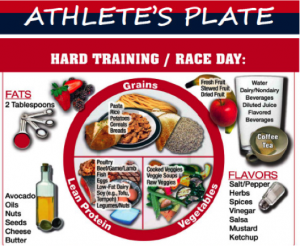
Athletes have unique nutritional needs, as their bodies require optimal fuel to perform at their best and recover quickly. Whether you’re a professional athlete or a weekend warrior, incorporating the right nutrition strategies into your training regimen can make a significant difference in your performance and overall health. In this article, we will explore various nutrition strategies specifically tailored for athletes to fuel their performance and enhance recovery.
Fueling Performance: The Importance of Macronutrients
To optimize performance, athletes need to understand the importance of macronutrients, which are the major nutrients required by the body in large amounts. These macronutrients include carbohydrates, proteins, and fats.
Carbohydrates: The Primary Fuel Source
Carbohydrates are the body’s primary source of energy. Athletes should aim to consume complex carbohydrates like whole grains, fruits, and vegetables to sustain their energy levels throughout workouts.
HTML markup:
<h1>Fueling Performance: The Importance of Macronutrients</h1>
<h2>Carbohydrates: The Primary Fuel Source</h2>
<p>Carbohydrates are the body’s primary source of energy. Athletes should aim to consume complex carbohydrates like whole grains, fruits, and vegetables to sustain their energy levels throughout workouts.</p>
Proteins: Building Blocks for Muscle Repair and Growth
Proteins are essential for repairing and building muscles. Athletes should include lean sources of protein in their diet, such as lean meats, fish, dairy products, and plant-based protein sources like legumes and tofu.
Fats: The Right Kind in Moderation
Contrary to popular belief, fats are not always bad for athletes. Healthy fats, such as those found in avocados, nuts, and certain oils, are important for maintaining hormonal balance and protecting organs. However, it’s crucial to consume fats in moderation, as excessive fat intake can hinder performance.
Hydration: The Key to Performance
Proper hydration is vital for athletes to maintain optimal performance levels. Even slight dehydration can impair performance and increase the risk of injuries. Athletes should aim to drink enough fluids throughout the day, both during workouts and outside of training sessions.
HTML markup:
<h2>Hydration: The Key to Performance</h2>
<p>Proper hydration is vital for athletes to maintain optimal performance levels. Even slight dehydration can impair performance and increase the risk of injuries. Athletes should aim to drink enough fluids throughout the day, both during workouts and outside of training sessions.</p>
Pre-Workout Nutrition: Fueling Up for Success
What you eat before a workout can significantly impact your performance. Athletes should focus on consuming a combination of carbohydrates and protein about 1-2 hours before their training sessions or competitions. This strategy ensures a steady release of energy and aids in muscle repair and recovery.
Post-Workout Nutrition: Enhancing Recovery
After intense physical activity, the body needs nutrients to repair muscles and replenish glycogen stores. Athletes should consume a mix of complex carbohydrates and protein within the first 30 minutes to an hour post-workout. This aids in muscle recovery and optimizes the body’s ability to bounce back.
Supplements: Enhancing Performance with Caution
While a well-balanced diet can provide most of the necessary nutrients, some athletes may benefit from specific supplements. However, it’s essential to consult with a healthcare professional or sports nutritionist before incorporating any supplements into your routine. They can guide you on appropriate supplements that can enhance performance and recovery while ensuring the safety of their usage.
Individualized Nutrition: The Power of Personalization
No two athletes are the same, and their nutritional needs can vary based on factors like gender, age, body composition, and training intensity. Consulting with a registered dietitian or sports nutritionist can help athletes develop personalized nutrition plans tailored to their specific needs and goals.
Conclusion
Athletes must prioritize their nutrition to optimize performance and enhance recovery. By fueling their bodies with the right macronutrients, staying properly hydrated, and utilizing pre- and post-workout nutrition strategies, athletes can give themselves a competitive edge. However, it’s crucial to remember that nutrition needs are individualized, and seeking professional guidance is always advisable to develop a personalized plan that supports performance and overall health. With the right nutrition strategies in place, athletes can take their performance to new heights and achieve their goals.